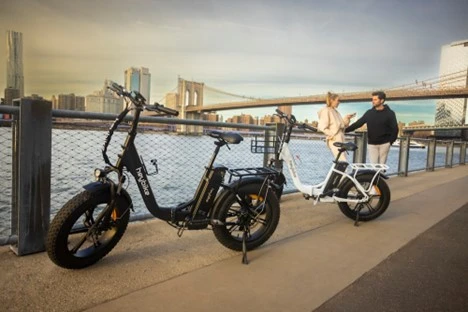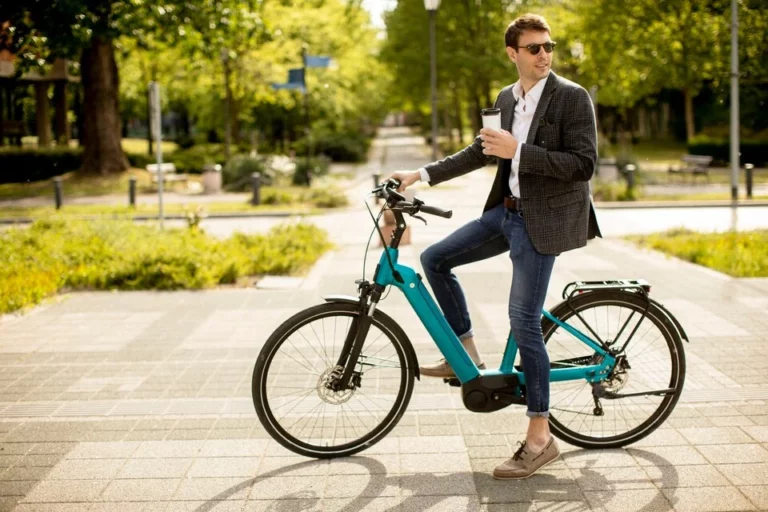6 Benefits of Switching to an E-Bike
Electric bicycles, also known as e-bikes, are fitted with a small integrated electric motor and battery. As the rider starts pedaling, the motor comes into action and generates extra power, making it easy to ride these bikes even up hills. With the increasing concerns over environmental sustainability and personal well-being, the adoption of e-bikes has increased in recent years. The E-bike Market size is likely to be 34.98 billion USD in 2024 and is expected to reach 51.78 billion USD by 2029. It means that it is growing at a CAGR of 8.16%. Therefore, it reveals that it will be a popular choice for commuting, running errands, and exploring new areas.
This article will discover the six major benefits of switching to the e-bike for some or all of your transportation needs. These benefits will highlight their versatility and the advantages they provide in comparison with the traditional modes of transport.
1. Environmental Benefits
Over the past few years, there has been considerable concern over the pollution being caused by the regular vehicles on the road. They are contributing to a number of types of pollution, including air pollution, noise pollution, etc. People that are invested in being eco-friendly are always looking for better alternatives and the e-bike has turned out to be a recent addition among the electric vehicles running on the roads.
Riding an e-bike over driving a car particularly has amazing benefits for a safe and healthy environment. E-bikes eliminate the greenhouse gas emissions from gasoline-powered vehicles that contribute to climate change. E-bikes generate less CO2 on average than an average car. Widespread use of e-bikes over cars can drastically reduce transport-related carbon emissions. E-bikes do not produce air pollutants like nitrogen oxides and other dangerous chemicals for human respiratory health. Regular electric bicycle maintenance can further help ensure you achieve environmental goals related to e-bikes. Fewer cars on the road means cleaner air and fewer chances of pollution-related diseases among people.
The natural resources required for manufacturing and working e-bikes are also less than those needed for cars and building roads and parking lots. An e-bike has a fraction of the raw material requirements of a car. They also do not need too much parking space compared to cars. E-bikes are a good mobility option, permitting more people to feasibly and comfortably replace car trips with zero-emissions electric bicycles as their preferred transportation method.
2. Health Benefits
Riding an e-bike has great health benefits through improving activity levels as compared to transport that encourages sedentary behavior. Cycling provides aerobic exercise that decreases the chances of cardiovascular disease, diabetes, stroke, hypertension, and even cancers. E-bikes make things easier related to hill climbs, long distances, joint discomfort, or inadequate stamina. The electric bike, therefore, makes it easy to bike without any problem, regardless of age and the kind of terrain.
E-bike users can reach their weekly exercise goals through transportation alone. There are multiple health advantages like improved immunity, cholesterol levels, blood pressure, bone density, and mental health while lowering disease risks. Regarding weight loss goals, using e-bikes can help burn more calories, especially if you are a consistent rider.
3. Economic Benefits
E-bikes are economical as compared to owning and driving a car. The purchase price of a quality e-bike ranges from $2,000 to $3,000 , far below the average cost of a car. E-bikes also require no insurance, registration fees, parking fees, or driver’s license to operate. The electricity cost to charge an e-bike battery averages 5 cents monthly for the average user. E-bike maintenance costs are also extremely low. It does not require frequent fluid changes or engine repairs. On a societal level, significant e-bike adoption reduces costs related to road infrastructure, congestion, emissions, and urban planning for cities and municipalities. Overall, riding an e-bike is vastly more affordable than automobiles.
4. Commuting Benefits
E-bikes for the daily commute to work or school have many advantages compared to riding a car or public transportation. E-bike users can avoid traffic congestion by using bike lanes and trails. Hence, it is possible to enjoy consistent travel times without being impacted by the worst rush hours. Riding a bike can boost energy, productivity, cognition, and focus throughout the work or school day. People who commute via e-bike consistently report arriving more alert, less stressed, and mentally sharper. Many companies now encourage employee e-bike commuting by installing workplace bike racks, lockers, and showers to harness these performance upsides.
5. Safety Benefits
Riding an e-bike is significantly safer than driving a car or riding a motorcycle. They provide stability and ease worries about balancing, making them accessible to more riders. Their electric-assist allows them to easily keep pace with traffic flow. They are typically ridden at lower average speeds than road cycling, allowing more reaction time. Cyclists and e-bike riders suffer far lower rates of injuries and fatalities than car occupants in accidents.
6. Community Benefits
E-bikes allow you to greet neighbors, interact socially, and explore new community small businesses and parks more easily. More e-bikes also lead to increased bicycle infrastructure investment to serve that constituency. This infrastructure also benefits traditional cyclists, pedestrians, children, and disability advocates.
On a larger scale, e-bike adoption reduces noise pollution, toxic emissions, and traffic congestion – all public nuisances associated with mass automobile usage. Over one hundred million e-bikes globally prove scale appeal. Ultimately, e-bikes deliver net social benefits from the local level to the community.
Conclusion
Using an electric bicycle has several benefits: your well-being, your wallet, your environment, and your community. E-bikes ensure healthy and pollution-free living. Besides riding with ease and convenience, it helps improve your fitness level, weight management, and mental outlook. E-bikes are pocket-friendly and economical. They have reduced the environmental threats related to greenhouse gas emissions and hence help to reduce air pollution and curb the extra usage of natural resources. With many personal and societal upsides, e-bikes efficiently and affordably transform transportation and enable sustainable mobility for people of all ages and abilities.







